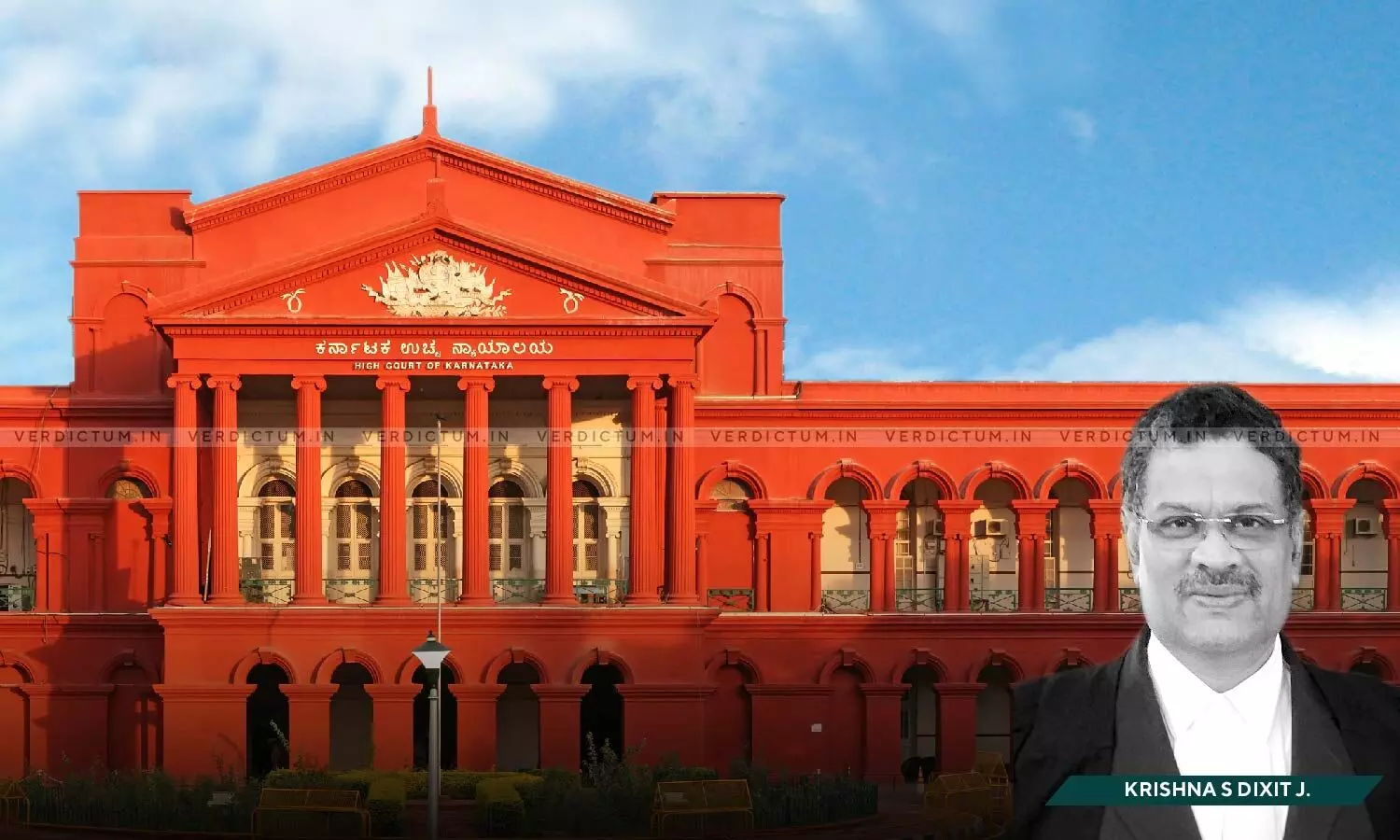
In Matters Of Transfer Or Clubbing Of Cases, Discretion Of The Court Is Not That Of Mughal Emperor: Karnataka High Court
 |
|The Karnataka High Court has recently, in a Writ Petition filed challenging the order of the Family Court, Bangalore which refused to club the suits between husband and wife, held that "When parties are the same, property involved is same and Court in which the suits are brought is the same, ordinarily, the request for clubbing should not be denied".
The single Judge Bench of Justice Krishna S Dixit in its order observed that "It is also true that in a matter of transfer and clubbing of cases, a greater discretion lies with the Court in which they are pending. However, it is not a discretion of a Mughal Emperor. Lord Halsbury, more than a century ago in SHARP vs. WAKEFIELD, 1891 AC 173, said that discretion means according to rules of reason and justice."
The High Court with above said reasoning stated that "Such an approach, at the hands of the Court below, is not reflected". The Petitioner wife had approached the Karnataka High Court challenging the order of the Principal Judge, Family Court which had refused to club two pending suits for a common trial and disposal between the wife and the Respondent-Husband.
Appearing for the Petitioner, Senior Advocate Suresh S Lokre along with Advocate Shravan S Lokre argued that when the matter essentially relates to the same property and the lis is between the ex-spouses, the grant of the subject application was eminently warranted. Appearing for the Respondent, Advocate S K Prathima contended that while the husband's suit is for partition, the wife's injunctive suit is of recent times and that the impugned order being the product of discretionary power, the indulgence of Writ Courts is not warranted.
The High Court noted that the Wife and Husband are ex-spouses and the subject property in both suits is the same. The High Court further noted that in both the suits, pleadings are complete and issues have been framed. Considering the facts of the present matter the Court held, that obviously, two suits will have their own issues; however, that per se, is no ground for denying the request for clubbing, especially when both the suits are at the hands of the same learned Judge.
The Court also stated that what prejudice would be caused to the Respondent should these suits be clubbed for the purpose of the trial, is not forthcoming and accordingly observed that "This Court hastens to add that, there is no repugnancy between the issues framed in the partition suit and those in the injunctive suit and therefore, clubbing would save time, energy, and vyavadhaana of all the stakeholders. Of course, it is left to the Judge's discretion to render a common or separate judgment & decree."
The High Court quashed the impugned order and directed the Trial Judge to allow the subject application of the Petitioner for clubbing and try both the suits together.
Cause Title: Reeth Abraham v. Sunil Abraham
Click here to read/download the Order